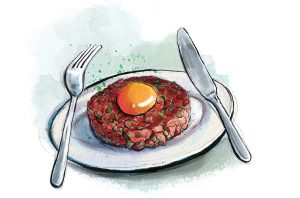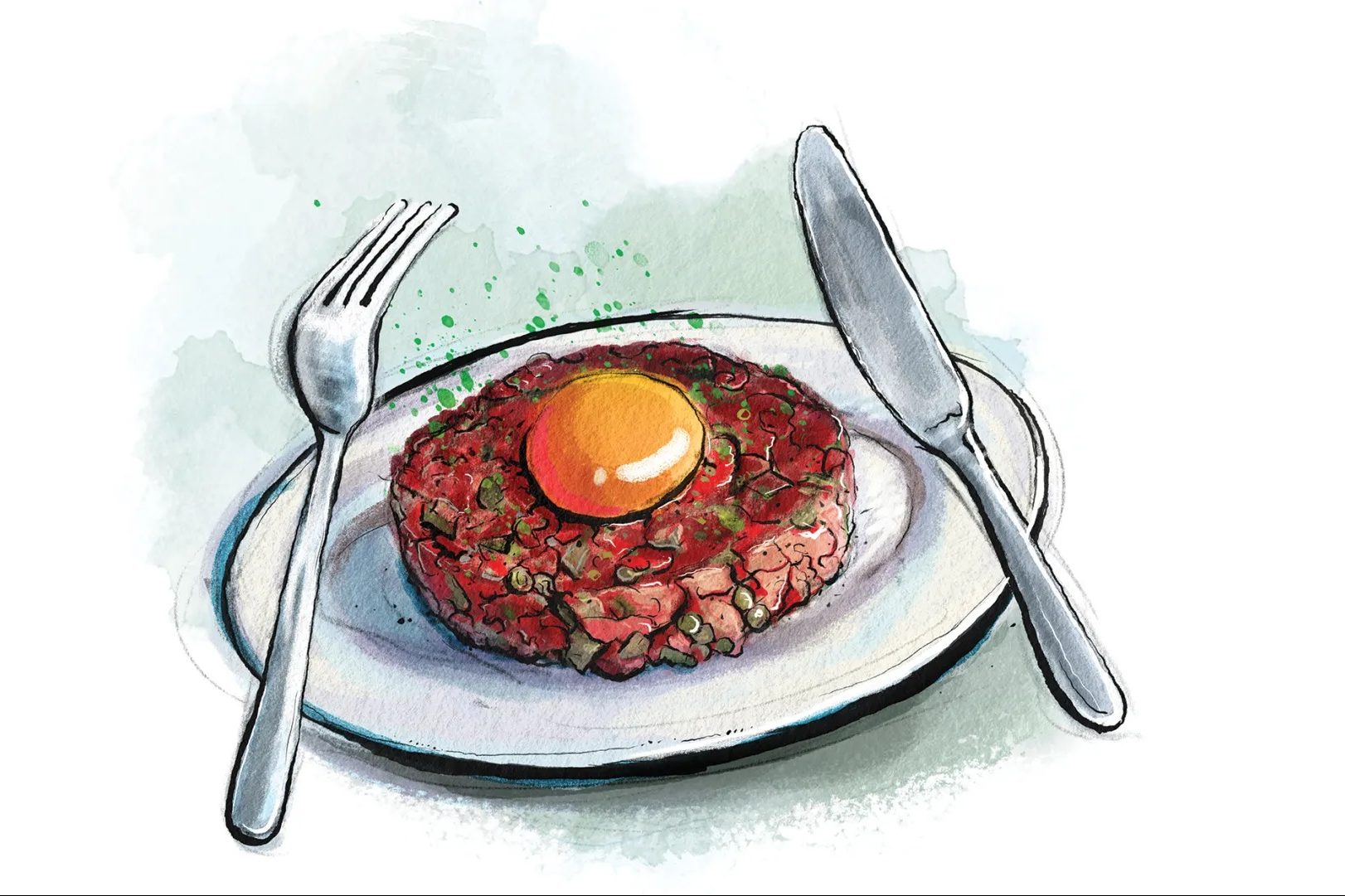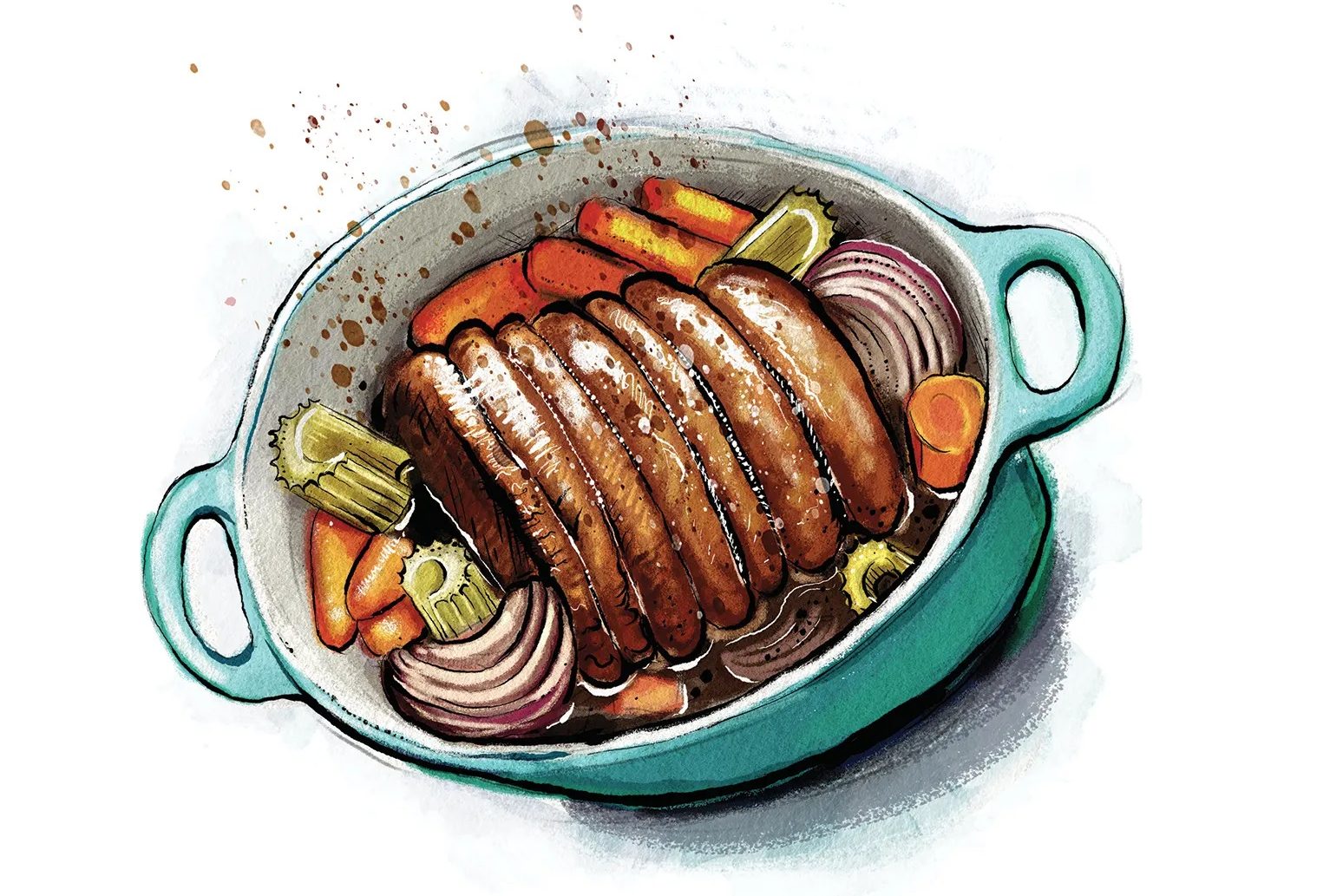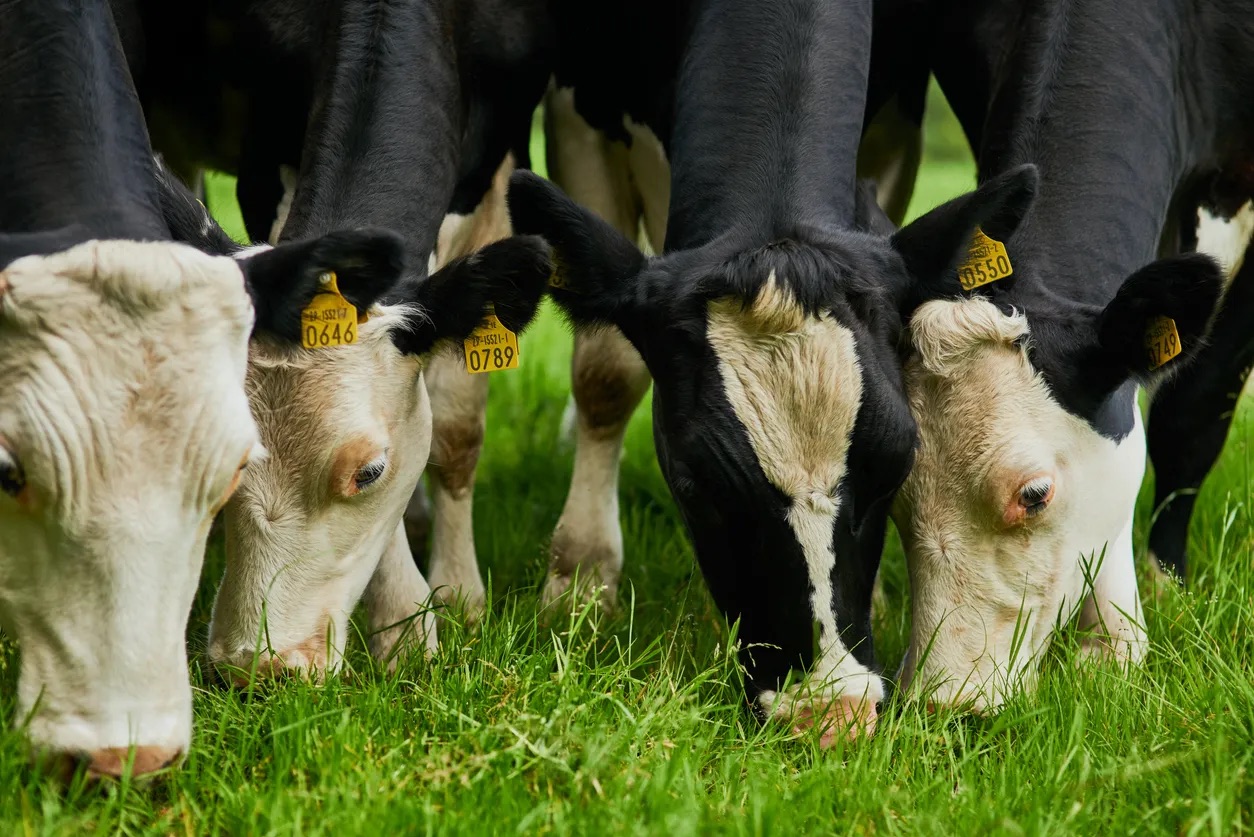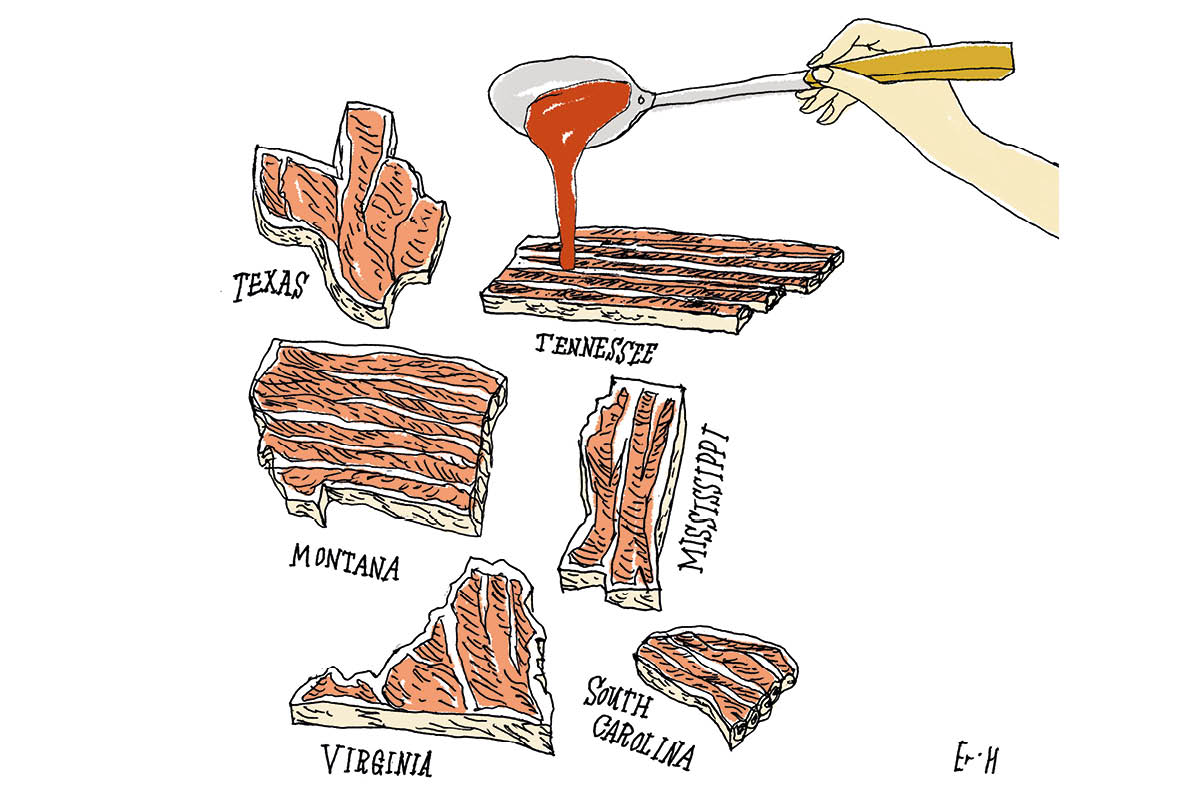Veganism is upon us. Something which was a minority dietary choice five years ago is now mainstream, a seemingly unstoppable bandwagon. I’m not here to discuss its merits, whether ethical, environmental or dietetic; the jury is still out. What interests me is the etiquette.
I have fed guests at my table for more than 50 years, and many of them have been vegetarians. No problem. Perhaps I’ve been blessed with particularly lovable vegetarian friends, but somehow their food preferences have always trumped my own carnivorous tendency and we all eat vegetarian. I hated the idea of serving separate dishes.
Veganism turns up the dial. It is, frankly, a cook’s nightmare. At a dinner I attended recently there were seven guests, plus the host: two vegetarians (one pescatarian), two vegans, a non-vegetarian couple who, for reasons unknown, abjure any dish containing onion or garlic, and two omnivores (myself and the host). Every dietary fad and proscription was honored. The table was laden with individually labeled dishes. Whether much joy attended the meal, it was difficult to gauge. A little tension, perhaps, for the host who kept checking and double-checking that everyone was happy.
But are food control freaks ever happy? We ate in the kitchen, so there was no denying the faint meaty smell in the air. When I passed the cheese board along the table, I got a warning look from our host. Pas devant les vegans, apparently. All I could think was, why don’t these food tyrants do us all a favor and stay home?
There are precedents. Jewish friends who keep kosher don’t expect my kitchen to conform to rabbinic standards. If we do dinner, it’s either at their place or we eat out at a place chosen by them. It’s not onerous, and their dietary requirements don’t monopolize what is meant to be a shared pleasure: food in the company of friends. Vegans, take note. Hospitality is something to enjoy graciously, or not at all. To respond to a dinner invitation with a list of items you won’t eat is both charmless and arrogant. This is perhaps the moment to mention another dietary fad: going gluten-free.
Genuine food intolerances and allergies are rare; certainly much rarer than the current stampede to the gluten-free aisle of the supermarket might suggest. But such things do exist, and no one wants to dine with an Epi-pen. I have a family member who has celiac disease, so I know not to dismiss this lightly. But that’s not at all the same thing as healthy guests who announce — drum roll, please — they’ve gone gluten-free.
‘Well get thee hence with your attention-seeking food fads,’ I say. ‘And all the more cake for me.’
But back to the vegans. I grew up in post-war Britain. Food was rationed and choices were limited, so we, the lucky post-war boomers, were raised to clear our plates and be thankful. If there was something we really couldn’t stomach (I nominate, parenthetically, a repellent dish from my mother’s repertoire, tripe and onions), we slid it under a cabbage leaf, ate everything else and hoped no one noticed. To make a fuss about what foods we would or would not eat was considered very bad form.
The Orthodox Church, which keeps four basically vegan fasts during its liturgical year, has some wise words for members who are invited to eat with the non-Orthodox during a season of fasting. I’ll paraphrase. Beware pride, runs the advice. Your fast is your fast. Don’t talk about it, humble-brag about it or inflict its quite demanding practicalities on your host.
As the number of vegans grows — they’re coming soon to a table near you — we need some new rules of etiquette. What might they be? When I’m a guest, I don’t announce that I’m a carnivore. Though I may hope for meat, I won’t sulk if I don’t get it. I dislike tofu, but I’ll eat it if that’s what you give me. I’ll even steel myself to eat celery, a vegetable I loathe, and I’ll smile all the while. I just won’t volunteer for seconds.
[special_offer]
Back in the day, vegans had better manners. Actually, back in the day everyone had better manners. Those who believe veganism is the only way to save the planet argue that it now transcends social niceties. This is war. Therefore, the feelings of anyone with a different point of view are immaterial.
To a vegan, a non-vegan is a stubborn and selfish throwback from a benighted age. To a militant vegan, live and let live apparently applies only to non-humans.
Perhaps, a hundred years from now, a plant-based meal will be the norm and peace will have broken out. But right now this growing vegan tyranny doesn’t augur well for happy family meals or relaxed dinners with friends.











